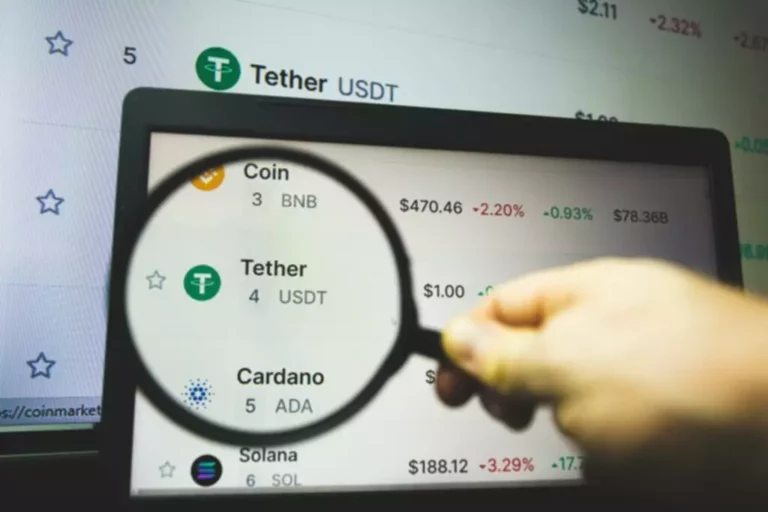And some platforms supply further features, similar to the power to earn curiosity by lending or staking your crypto. If you might have hassle, the corporate may have buyer support workers that may assist answer your questions. According to Reuters, an estimated $4 billion worth of cryptocurrencies vanished off of exchanges between 2011 and 2017. Over the years, centralized exchanges have been the targets of high-profile hacks that have resulted within the lack of lots of of millions of dollars price of cryptocurrencies. Many of the hack schemes have focused central authorities which are deemed to be a probable what is a centralized exchange level of failure.
Centralized Change (cex) Vs Decentralized Exchange (dex): What’s The Difference?
Choose a decentralized wallet if security and being in charge are essential to you. If you prefer something easier with extra assist, use a centralized wallet. Even though main CEXes have stronger firewalls than most governments, there are multiple cases in historical past the place exchanges have been hacked and misplaced customer funds.
What Are Some Great Advantages Of Utilizing A Decentralized Exchange Over A Centralized One?
Given the fast progress within the variety of cryptocurrencies, these exchanges play an more and more essential position. To get began, you have to create an account, confirm your identification and join a funding supply, corresponding to a debit card or bank account. You can then buy, sell or trade between any of the cryptos the change helps.
How Do Centralized And Decentralized Exchanges Differ In Security?
Curve Finance, on the other hand, expenses a zero.04% swap fee for Ethereum-based trades and a 0.1% fee for Polygon-based trades. Note that some DEXs cost somewhat greater than this, such as Uniswap, with its zero.3% buying and selling fee. However, there are some tremendous reasonably priced centralized exchanges out there at present.

What’s A Centralized Cryptocurrency Exchange (cex)?
Centralized exchanges have their own order books, that means every transaction is recorded and validated. CEXs additionally operate under tight regulatory supervision, making certain that fraud and cash laundering activities don’t happen. At this time, they can not yet compete with the largest CEXs in measurement so they can not supply as much liquidity. The rising popularity of DEXs might partially replicate their success in dodging some regulatory hurdles. ShapeShift was once a CEX till its CEO mentioned the company lost 95% of its customers on account of KYC measures it was forced to implement in 2018.
Distinguished Examples Of Cex And Dex
In practice, DEXs usually compensate liquidity suppliers through transaction fees. As neat as this system is, it does introduce a threat for the liquidity providers behind the pool. Liquidity suppliers are entitled to withdraw the portion of the value of the pool they contributed, not the precise variety of tokens they put in. It could not promise all providers their exact tokens, as a result of the ratio of different tokens held in the pool modifications as trades happen. But because the ratio adjusts to reflect current wider market prices, the pool is going to progressively comprise more of whatever token is dropping value, and vice versa.
- They adjust pockets balances, control nodes and in some ways behave identical to the centralized establishments they supposed to switch.
- Centralized and decentralized exchanges (CEXs and DEXs) are two primary types of platforms in crypto buying and selling.
- Research has proven that in actuality, solely a handful of people contribute to setting and implementing a blockchain’s guidelines.
- 1inch raised $12 million in 2020 in a funding spherical led by Pantera Capital.
- They can create self-enforcing digital contracts that eschew human mediation or marketplaces freed from any regulation.
Using Bitcoin Atms For Every Day Wants

On the other hand, decentralized exchanges usually prioritize person autonomy by allowing traders to retain control over their funds. They use automated market maker to enhance usability and simplify trading processes. However, buying and selling on decentralized exchanges may result in slower order execution, especially in periods of high community congestion.
In this case, it is essential that you bear in mind to retailer your non-public keys and seed phrase in a protected, offline location to ensure the security of your funds. When you employ a DEX, you don’t rely upon another person to carry your crypto. The reply to this question will vary primarily based on which trade you are utilizing.
Crypto exchanges are either centralized (CEX) or decentralized (DEX). Centralized cryptocurrency exchanges, as the name implies, function as a intermediary between consumers and sellers. Almost all crypto transactions are conducted through centralized exchanges, which give extra trustworthiness. While decentralized exchanges could promote decrease buying and selling fees, customers typically incur higher total costs as a outcome of gas bills. Balancing between centralized and decentralized exchanges requires understanding the safety measures and risks of both methods.

The infinite potentialities of decentralization have begun to emerge and are already affecting us right here and now. Unlike KYC on a centralized exchange, a DEX requires no such identification. This means you ought to purchase and promote all of the crypto you’d like without anybody figuring out who you are.
Choosing between CEX or DEX is dependent upon your data level and the period of time you want to put cash into crypto. No matter which possibility you select, you’ll still need to report your activities at tax time. While it’s more open and flexible, it provides a unique level of competitors or structure than a professional staff. Despite its monumental worth proposition, the AMM model doesn’t substitute centralized order books’ accuracy and efficiency with centralized liquidity. As of 2021, there are over four,000 unique cryptocurrencies available on the market.
The decision between centralized and decentralized exchanges relies on private needs and pursuits. Decentralized exchanges place a better precedence on privacy and autonomy somewhat than centralized exchanges, which give simple use, liquidity, and regulatory compliance. Decentralized exchanges allow peer-to-peer cryptocurrency buying and selling with none want for middlemen. These platforms rely on the blockchain system and good contracts to carry out transactions immediately between individuals, increasing safety and independence. Both centralized and decentralized exchanges shape the setting of digital asset trading with their traits, advantages, and drawbacks.
In other words, there’s an actual individual or staff you can communicate to should you encounter any points or need to recuperate lost funds. These sturdy safety measures can be a large benefit if a centralized exchange is hacked. One good example is when this occurred to Coinbase in March and May 2021. While many customers had their accounts drained, the company reimbursed customers for their lost funds. For these who’ve been around, decentralized ones supply extra control and privacy. Your alternative should be based in your trading style, how protected you want to be, and how snug you are with the tech.
Read more about https://www.xcritical.in/ here.
























Leave A Comment